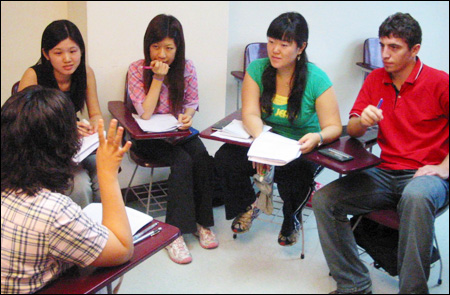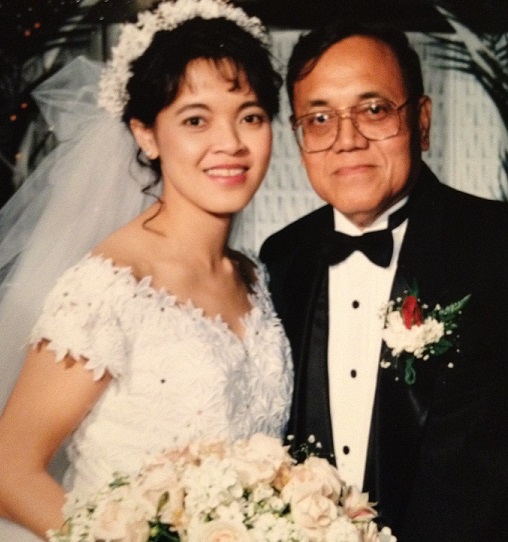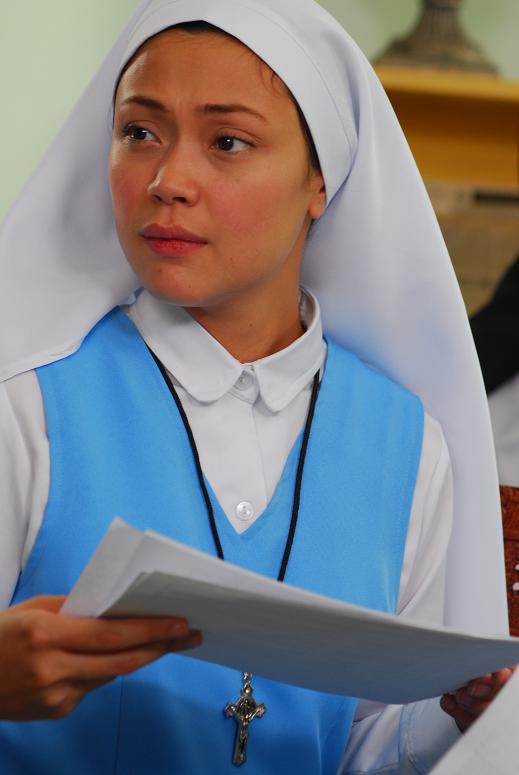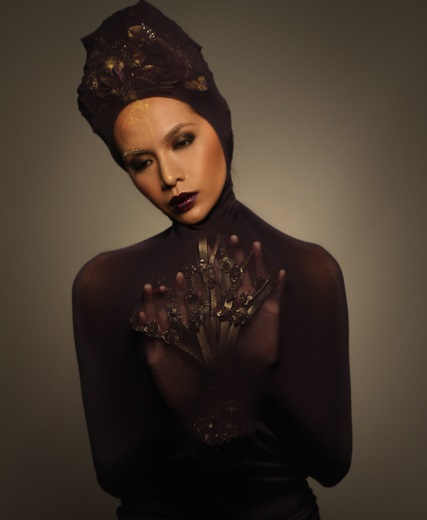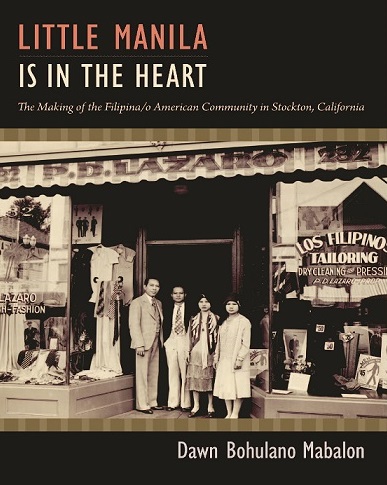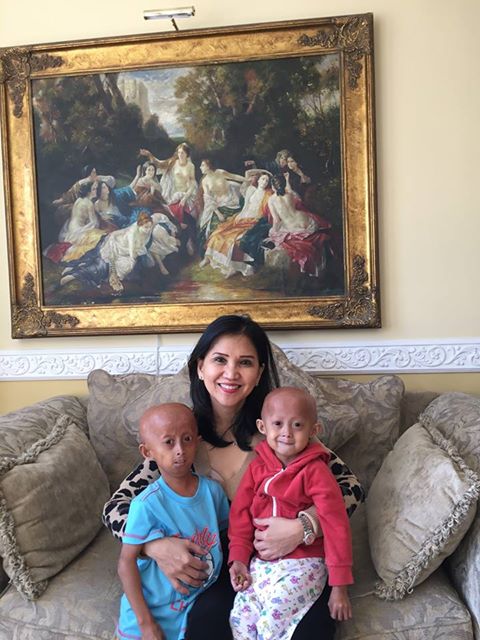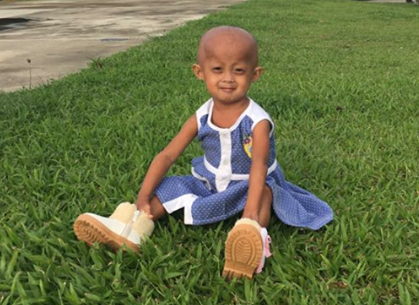‘It’s not a curse,’ declare parents of progeria siblings
By Cristina DC PastorSiblings Jeshaiah and Nezha Agbayani are like any other children. They love music and play with other kids their age. Unlike most kids, however, they get stared at and attract unwelcome attention because of a genetic disorder called progeria.
Jeshaiah, who is 10, looks like a 70-year-old. He is an honor student and plays the ukulele. His sister Nezha, who is 4, lost her hair, eyebrows and eyelashes. Her fingers started to become deformed like she has arthritis, the nails not growing at all. The Hutchinson-Gilford Progeria Syndrome makes them look seven times older. The condition called progeria is a Greek word that means “prematurely old.”
“They are happy children,” said their mother Jumely Agbayani, 35, a school teacher in Cagayan Valley. “But when people stare at them, nagsusumbong sa amin.”
The children have an older sister, Althea, 15, who does not have the condition, Jumely said in an interview with The FilAm. The family, who is in the U.S. until March 21, have visited specialist doctors from the Progeria Research Foundation in Boston., who assured them their children’s condition was not hereditary. They’re in New York as a side trip and to grace a March 17 benefit show to raise funds for the children’s treatment.
“Ang explanation nila, hindi raw nakuha sa amin,” said Jumely. “Buti naman.”
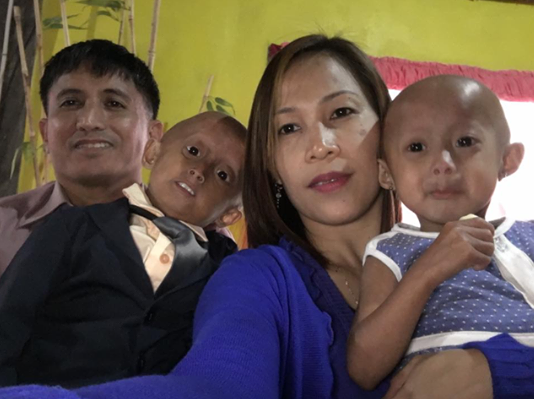
The Agbayani family – from left Gerson, Jeshaiah, Jumely and Nezha — is visiting New York after seeing specialists at the Progeria Research Foundation in Boston.
Jumely and her husband Gerson, 40, a driver-mechanic, are traveling with their children around the East Coast –Boston, Baltimore, Washington D.C. and New York. The Project Michelangelo Foundation took them to progeria doctors and gave them a tour of the cities they visited. Some doctors prescribed medication such as the anti-cancer Lonafarnib and Everolimus, a trial medication to manage risk factors for high blood pressure or stroke.
As explained by Dr. Imelda Banting, vice president of the foundation, progeria children may be young but their physical conditions are those of adults.
“They have normal learning capacity, but they get high blood pressure, arthritis, and their blood vessels harden. Their common cause of death is usually stroke or heart failure,” she said. She further pointed out that Jeshaiah is an academically gifted fifth grader at Marede Elementary School in Santa Ana town in Cagayan.
Progeria, she said, manifests itself on young children and not on adults. Some may look “normal” at birth until the condition begins to appear within one or two years as the children develop wrinkled skin or balding hair. Cardiovascular conditions are also detected. The Agbayani siblings have constantly complained of headaches growing up.
“The children are not bullied when they’re in school or when they’re in our town, said Jumely. “It’s when they leave town…”
Their father Gerson said no one in their family is spared from the talk and the shaming.
“May mga nagsasabi na isa itong sumpa,” he said. When people say the family is “cursed” is what hurts the most, he said. That’s why the couple was elated to learn from doctors in Boston that the progeria that visited their kids did not come from them.
“It’s genetic mutation,” said Banting. “There’s one wrong letter in the gene coding leading to an abnormality of the progerin protein, and it spread uncontrolled throughout the body.”
The Project Michelangelo Foundation, headed by Jojo Sayson of Bourbonnais, Illinois, was founded in 2011 after meeting Ana Rochelle, the first known progeria patient in the Philippines. In 2016 Rochelle, the first Filipino to avail of trial treatments in Boston, died at age 19. It is believed the treatment was able to prolong her life because the typical life span of a progeria patient is anywhere from 13 to 15 years. While Rochelle was chronologically a teenager, she died at the accelerated age of 150.
Said Banting, “Our goal is to help children in need, not focusing only on progeria-afflicted youth. Somehow the case of Rochelle seemed to call attention to the condition.”
Progeria is such a rare disease, she stressed. Currently, there are an estimated 250 cases around the world. In the Philippines, there are only four living patients, among them the Agbayani children.
I asked Jumely if she is ready in case one or both of her kids are snatched from her by the disease. She replied, “Hindi ko pa po kaya.”
© The FilAm 2018




